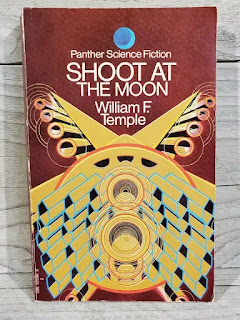Charles Beaumont is a former MI6 operative. This, his debut novel, set in 2022, after the Russian invasion of Ukraine, bristles with up-to-the-minute insider knowledge. His protagonist, Simon Sharman, is also a former spy, in his case not with either of the MIs but with The Pole, the third service, the Joint Intelligence Directorate. He was briefly celebrated for having recruited a prominent Russian operative back in the Nineties. But these things pass. It was decided by those further up the Pole, the number-crunchers, the typical Oxbridge graduates, that Simon's source was not producing anything worthwhile. Simon resigned in a huff, his agent, codename COSSACK, retires covered with medals to become a minor oligarch. Simon sets up a private sector agency which, by 2022, he is running from his flat.
Then, out of the blue, he is recruited to do due diligence on another oligarch, Georgy Sidorov, who wants to make a significant donation to Oxford University. His recruitment is not accidental. The client is also an ex-Pole man gone private. And Simon, despite his humble origins, is also an Oxford grad. He needs the money, everyone knows that, and he was a decent enough fieldman in his day.
A quarter-century ago, when Simon was an undergrad, he was vaguely in the circle of the notorious rightwing academic, Professor Peter Mackenzie. It was understood that despite his borderline fascism Mackenzie had a lot of contacts in British Intelligence. Indeed, lots of his former pupils went on to have distinguished careers in Intelligence. Simon had rather hoped to get a recommendation from the Professor, until an unfortunate traumatic encounter meant he had to make his own way.
Early intelligence, mainly from the internet, suggests that Sidorov often visited Oxford but for no apparent reason. Simon the fieldman who knows the territory retraces the Russian's route and finds that he always passed beneath the window of Mackenzie's rooms. Simon knows all about burst transmissions - that's how he trapped COSSACK. The great unaswered question of Twentieth Century spycraft has always been, why only a Cambridge Ring? Who no Oxford Ring? Has Simon unconvered one? Is this his chance to salvage his reputation?
Beaumont writes really well. He easily manages the transitions in time from the early Nineties to 2022. Obviously his technical know-how convinces. But he has quite a gift for characterisation - Simon, in particular, is someone we want to follow further, and Beaumont cleverly leaves the door open for more. I especially enjoyed the scabrous take on politics of the Johnson era which must have been written as it all fell apart. A fantastic debut, then. I look forward to Beaumont's next.






























